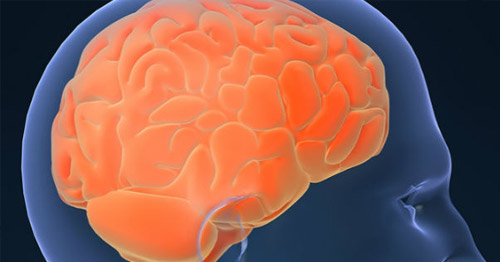Neuropsychiatric Lupus – Lupus and the Brain
What is neuropsychiatric lupus?
Systemic lupus erythematosus (lupus) may affect any organ of the human body. When lupus affects the brain, spinal cord, or nerves, we call this neuropsychiatric lupus or neuropsychiatric SLE (NPSLE). If it affects the brain or the spinal cord, this is central nervous system (CNS) involvement, whereas if it involves the peripheral nerves (those outside the spinal column), it is peripheral nervous system (PNS) disease.
NPSLE is often a serious manifestation of lupus. The symptoms of NPSLE can be highly variable, ranging from mild non-specific symptoms such as headaches, “brain fog” and mild mood disorders, to rare and severe presentations. NPSLE usually occurs at the time of the first lupus symptoms or within the first two years after the initial diagnosis.
It is very hard to know whether NPSLE symptoms are directly due to lupus, the emotional burden of having a chronic disease, the medications used to treat lupus, or other common problems, as some of the symptoms in NPSLE can also be present in people without lupus. For example, headaches can be due to lupus but can also be due to migraines, tension headaches, sinus problems, etc. Similarly, mild depression, mild memory problems, and neuropathies can be due to lupus or other common conditions. Whether the symptoms are due to NPSLE or other medical conditions can only be determined by evaluation by a rheumatologist or other treating physicians.
NPSLE in general requires prompt attention and treatment. Effective communication between the patient and treating physicians is particularly important for early diagnosis of the problem and effective treatment. The rheumatologist usually works together with a neurologist and other members of the healthcare team for the best care of these patients. When patients are treated this way, the results are often very good and rewarding to both patients and doctors. (Find a rheumatologist at HSS who treats lupus.)
What are common symptoms of neuropsychiatric lupus?
The most common manifestations of neuropsychiatric lupus (NPSLE), after excluding the non-lupus specific symptoms of headache, anxiety, mild mood disorder, mild cognitive impairment (“brain fog,” or mild memory problems), and mild neuropathy include:
- stroke
- seizures
- sudden confusion and/or psychosis
These problems usually occur at times of lupus flares in other organs (such as arthritis, skin rash, or kidney disease). To confirm that the symptoms are indeed due to lupus-related immune system activation and subsequent inflammation of the nervous system, doctors first exclude other causes for these problems. For example, in the case of stroke, they check for atherosclerosis (hardening of the blood vessel walls) and hypertension (high blood pressure). In the case of seizures, they check for stroke, infection, kidney failure, tumor, or drug effects.
The patient with sudden confusion may lose the ability to focus or think logically and may become either too sleepy, or agitated and unable to sleep. In the case of psychosis, the patient perceives or interprets reality in a different way from other people and may experience hallucinations (seeing, hearing, smelling, or tasting things that are not real), and delusions (strong odd beliefs that are not shared by others). Confusion and psychosis may also occur due to non-lupus causes such as infections, or medications. Of note, high doses of glucocorticoids, although often used to treat lupus, may also cause insomnia, irritability, mood problems and rarely psychosis.
NPSLE may also affect one or more of the peripheral nerves (neuropathy), causing, for example, foot weakness or numbness. Mild memory problems are not unusual, but severe dementia is rare. Finally, some even rarer problems include non-infectious meningitis and transverse myelitis. Transverse myelitis is a serious condition due to inflammation affecting the spinal cord. If untreated, it may cause bladder/bowel incontinence and leg weakness.
What are the causes of neuropsychiatric lupus?
How lupus sometimes causes neuropsychiatric problems is not clear. In many cases, it may be due to autoantibodies (antibodies that are against our own body). These antibodies, under certain conditions, can reach the brain and cause inflammation. In other cases, neuropsychiatric problems are due to the release of certain proteins (cytokines) that cause inflammation within the brain. In general, these manifestations happen when lupus is very active (flaring). Additionally, patients with lupus can develop blood clots when the disease is active and/or they have antiphospholipid antibodies in the blood. These blood clots can occur in the brain or travel to the brain causing strokes.
What is the treatment for neuropsychiatric lupus?
As indicated above, before treating a lupus patient with neuropsychiatric symptoms, it is necessary for the treating physician to rule out other conditions with similar symptoms, such as infections, or drug-related adverse effects. Infections should be especially considered in patients treated with heavy immunosuppression (drugs that lower the immune system). A thorough evaluation including history, physical examination, blood, and urine tests is needed not only to rule out other conditions but also to assess how active lupus is in general. Usual tests performed include complete blood count, serum metabolic (chemistry) profile, anti-double stranded DNA antibodies, antiphospholipid antibodies, complement levels, and urine studies to assess for inflammation in the kidneys. Additional tests that are often used to help diagnosis of neuropsychiatric lupus may include a spinal tap to remove fluid for analysis, electroencephalogram (EEG) to diagnose seizures, nerve conduction studies in case of neuropathies, and MRI to image the brain or spinal cord.
The treatment of neuropsychiatric manifestations depends on the particular problem and its cause. When the problem is due to active lupus (flaring), the disease is treated with glucocorticoids (such as prednisone) and immunosuppressive drugs (such as cyclophosphamide, mycophenolate mofetil, azathioprine, rituximab, etc.). Intravenous immunoglobulin (IVIG) is sometimes used as well. The newly approved biologic drugs for SLE, such as belimumab or anifrolumab, have not yet been used for neuropsychiatric lupus. In strokes that are due to blood clots, blood thinners are used, when there is no contraindication. Seizures due to lupus are also treated with anti-seizure medications. Finally, psychosis and confusion due to active lupus may also be treated with mood-stabilizers and anti-psychotic medications in addition to drugs for immunosuppression.
Updated: 6/14/2023
Authors
Director, Lupus Nephritis Program, Hospital for Special Surgery
Clinical Co-Director, Mary Kirkland Center for Lupus Care, Hospital for Special Surgery
Ruth Fernandez Ruiz, MD, MS
Assistant Attending Physician, Assistant Professor of Medicine
Weill Cornell Medicine



